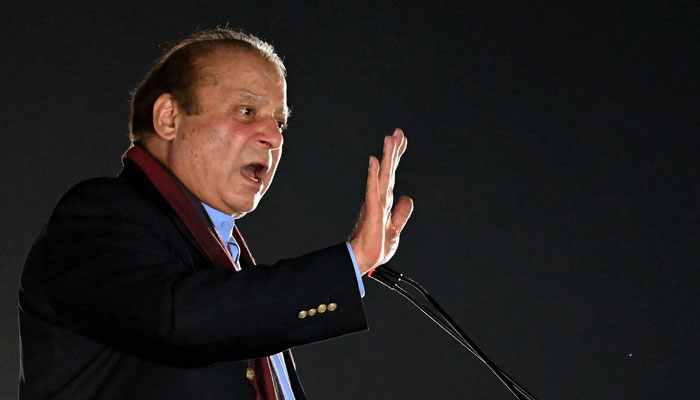Can Nawaz overcome challenges, lead Pakistan to progress?
Nawaz Sharif faces trio of formidable challenges: internal PML-N discord, elite capture in Pakistan, a highly polarised political landscape
October 24, 2023

ISLAMABAD: Mian Nawaz Sharif has made a triumphant return. Despite facing legal challenges, his return reflects his commitment to Pakistan and to Pakistan’s progress. Based on my personal knowledge, he is pro-reform. He wants to reform various sectors of the country, including public sector enterprises, the energy sector, the judiciary, the Federal Board of Revenue (FBR), and the civil service. Based on my personal knowledge, he wants economic as well as institutional reforms.
Mian Nawaz Sharif faces a trio of formidable challenges: internal discord within his team, the issue of elite capture, and a highly polarised political landscape. Firstly, his closest advisors and associates do not share his commitment to reform. Secondly, the ominous spectre of "elite capture" looms large, wherein a select group of influential individuals, encompassing politicians and wealthy elites, wield disproportionate control over vital institutions and resources. "Elite capture" breeds corruption, nepotism, and cronyism. This issue remains a formidable obstacle in Pakistan, obstructing the fair distribution of resources and impeding the nation’s advancement toward a more inclusive and transparent society.
Mian Nawaz Sharif confronts a landscape of intense political polarisation characterised by profound divisions within Pakistani society. Contentious matters such as governance, accountability, and economic policies are catalysts for this deep-seated divide. This polarisation obstructs the prospects of constructive political dialogue, thereby hampering Pakistan’s capacity to effectively tackle pressing issues, encompassing economic hardships and security apprehensions.
To succeed, Mian Nawaz Sharif would need to undertake the following five-step agenda: To begin with, strengthen the PML-N and ensure internal party cohesion. He must encourage younger leaders within the party. Next, effective communication through the media and social platforms. Nawaz Sharif would need to harness the power of modern communication tools to reach out to the masses, present his vision, and counter opposition narratives.
Next, Mian Nawaz Sharif must present a clear and compelling vision for Pakistan’s economic development and governance. He must directly address issues like inflation, unemployment, and corruption, which resonate with the electorate. He would need to articulate a comprehensive policy agenda that appeals to a wide range of stakeholders.
Next, Mian Nawaz Sharif must present a pragmatic approach to security issues; a robust security strategy will enhance his credibility as a leader. Next, Mian Nawaz Sharif must connect with people across various provinces and demographics. He must address the concerns and aspirations of the ordinary citizens, gain their trust and support.
Will Nawaz Sharif manage to navigate these challenges and muster the essential support to transform his reform vision into a tangible reality? Only time will provide the answer. The trajectory of Pakistan’s future development relies on the capability of its political leaders to collaborate in the midst of adversity and place the nation’s welfare above personal and partisan interests.
The writer is a columnist based in Islamabad. He tweets/posts @saleemfarrukh and can be reached at: [email protected]
Disclaimer: The viewpoints expressed in this piece are the writer's own and don't necessarily reflect Geo.tv's editorial policy.
Originally published in The News











